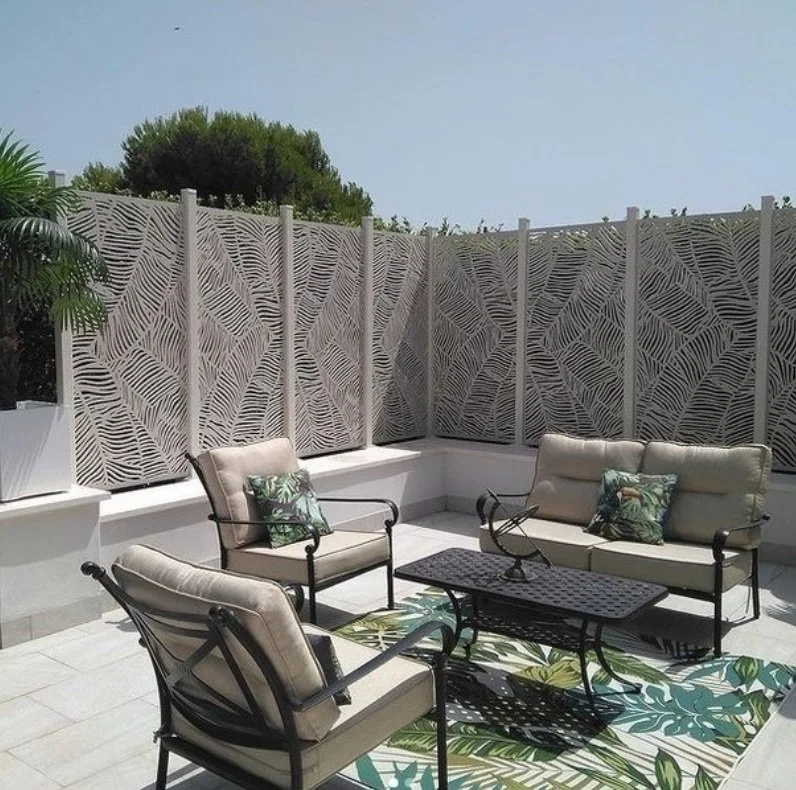Unveiling the Power of Composite: Exploring What It Is and the Many Advantages
In the world of outdoor screening and fencing, one material has been making waves for its versatility, durability, and eco-friendliness: wood-plastic composite (WPC). Let's delve into what makes composite such a powerful choice and explore the myriad advantages it offers for screening and fencing applications.
What is Wood-Plastic Composite (WPC)?
Wood-plastic composite, often abbreviated as WPC, is a blend of natural wood fibres and recycled plastic materials. This combination results in a versatile material that combines the natural aesthetics of wood with the durability and low maintenance of plastic.
Advantages of Wood-Plastic Composite for Screening and Fencing:
Durability: One of the most significant advantages of WPC for screening and fencing is its exceptional durability. Unlike traditional wood, composite materials are resistant to rot, decay, and insect damage, making them ideal for outdoor applications where exposure to the elements is inevitable.
Low Maintenance: WPC requires minimal maintenance compared to traditional wood fencing. It does not require staining, painting, or sealing to maintain its appearance, saving you time and money on maintenance tasks.
Longevity: Thanks to its resistance to moisture, rot, and decay, WPC fencing and screening have a longer lifespan compared to traditional wood. This means you can enjoy your outdoor space without worrying about frequent replacements or repairs.
Eco-Friendly: WPC is made from a blend of recycled plastic materials and natural wood fibers, making it an eco-friendly choice for outdoor projects. By using recycled materials, WPC helps reduce waste and minimize environmental impact.
Versatility: Wood-plastic composite comes in a variety of colors, textures, and styles, allowing for endless design possibilities. Whether you prefer the look of natural wood or a more contemporary aesthetic, there is a WPC option to suit your preferences.
Easy Installation: WPC fencing and screening are designed for easy installation, with interlocking panels or boards that can be quickly assembled. This makes it a popular choice for DIY enthusiasts and professional installers alike.
Weather Resistance: Composite materials are highly resistant to weathering, UV rays, and temperature fluctuations, ensuring that your screening or fencing retains its appearance and structural integrity over time.
Noise Reduction: WPC screening and fencing can help reduce noise transmission, providing a quieter and more peaceful outdoor environment.
Conclusion
Wood-plastic composite (WPC) offers a host of advantages for screening and fencing applications, making it an increasingly popular choice for homeowners and landscapers alike. From its durability and low maintenance to its eco-friendliness and versatility in design, WPC is a powerful material that can elevate the aesthetics and functionality of any outdoor space. Whether you're looking to enhance privacy, define boundaries, or add visual interest to your property, consider the power of composite for your next screening or fencing project.


